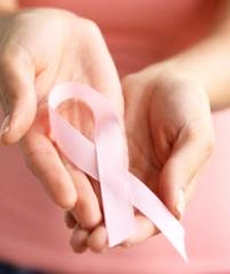fitness news
![]() ,
,![]()
Font size Women’s Health
Generic breast cancer prevention drug overlooked
– Reported, February 8, 2012
 Relatively few postmenopausal women at high risk for breast cancer are taking a generic drug proven to reduce the diseases occurrence.
Relatively few postmenopausal women at high risk for breast cancer are taking a generic drug proven to reduce the diseases occurrence.
After a study of 4,600 healthy women concluded that exemestane, sold under the brand name Aromasin, decreased the risk of breast cancer by 65 per cent was published in the New England Journal of Medicine last June, Canadian researchers examined its bone density loss side-effects more closely.
Although the bone density side-effects were significant in 65 per cent of the women, the benefits in preventing cancer were considerable.
“If they are at increased risk and their mother and sister had it, yeah, I would consider taking this medication,” said lead study author Dr. Angela Cheung, director of the osteoporosis program at Toronto’s University Health Network.
Other options for these women, such as having their breasts removed, are more extreme.
Exemestane belongs to a class of drugs known as aromatase inhibitors that suppress production of estrogen, which can fuel breast cancer.
Exemestane is approved in Canada to prevent recurrence of tumours in people with breast cancer, but it isnt approved to prevent first cancers as Cheung’s study sought to do.
Dr. Paul Goss of Massachusetts General Hospital Cancer Center was a co-author of the New England Journal of Medicine paper that showed the benefits of exemestane to prevent breast cancer.
Weighing drug prevention
“Pfizer [has] lost interest in the compound because drug is generic,” Goss said in a email to CBC News. “So, yes further studies will be limited.”
Pfizer said exemestane is not listed as a preventive therapy in postmenopausal women at high risk for developing breast cancer in the U.S. and Europe.
But Canadian doctors can prescribe it off-label for that purpose.
“Pfizer cannot comment on regulatory plans for Aromasin at this time,” said Jenifer Antonacci, director of media relations for the company.
Anti-estrogen drugs such as tamoxifen and raloxifene have more serious side-effects such as uterine cancer and stroke.
Cheung said the blood clotting risk of exemestane was similar to that of birth control pills.
Estrogen is actually beneficial to bones, Cheung said in stressing the need for women taking exemestane to have regular bone monitoring and get adequate vitamin D and calcium.
In the study, the 351 women had an average age of 61, did not have osteoporosis and had not been prescribed bone-building medications.
The participants took daily supplements of 1,200 to 1,500 milligrams of calcium and 800 international units of vitamin D to preserve bone health.
When the researchers measured the integrity of key bones using sophisticated techniques, they found significant changes in about 65 per cent of the women.
Previous studies may have underestimated bone loss caused by aromatase inhibitors, Jane Cauley, an epidemiology professor at the University of Pittsburgh, said in a commentary published Tuesday with Cheungs study in the journal Lancet Oncology.
For Dorothy Funk of Portage la Prairie, Man., those odds are worth it. After Funk’s mother and two aunts died of breast cancer, she and her sisters enrolled in the clinical trial. Shes decided to start taking exemestane, saying that watching her mother die made her want to act.
“I am not sure why people would hesitate,” Funk said. “If you can be proactive, that is the way to go.”
In the latest study, anyone over 60 and Caucasian would be considered at increased risk for breast cancer. But the researchers said they still need a better way to protect individual risk for women like Funk.
The study was funded by the Canadian Breast Cancer Research Alliance, the Canadian Cancer Society, Canadian Institutes of Health and an unrestricted grant from Pfizer.
Credits:
CBCs Kelly Crowe and The Canadian Press
More information at:
http://www.cbc.ca/news/health/story/2012/02/07/breast-cancer-drug-prevention.html